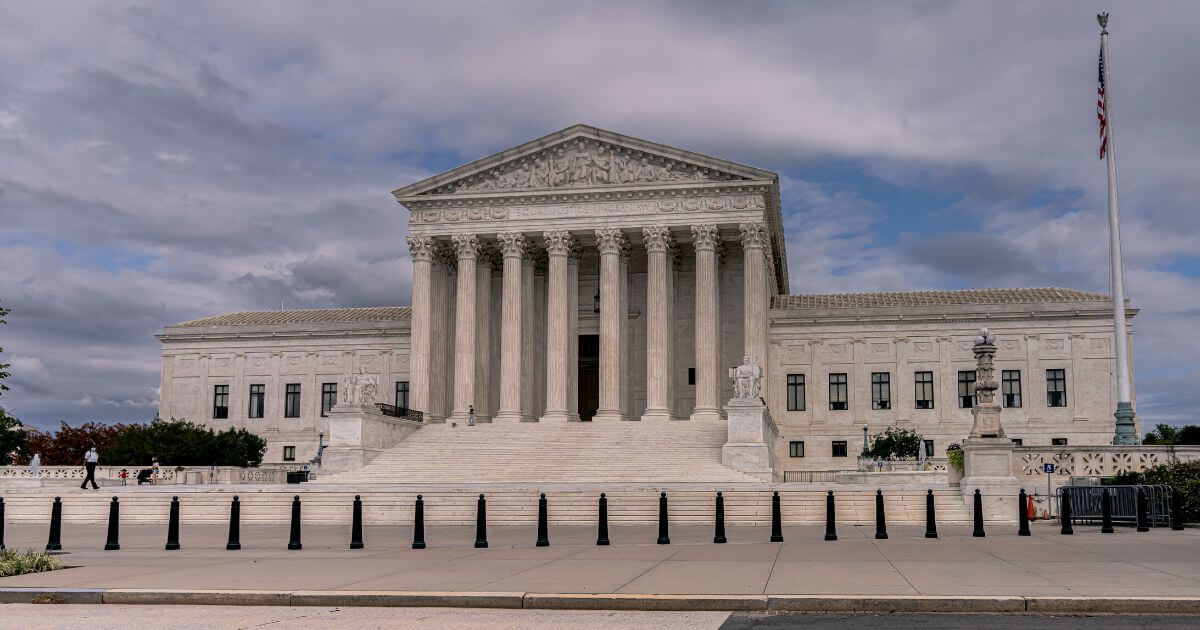The US Supreme Court has struck down the Roe v Wade decision that previously legalised abortion across the United States in 1973.
The 6-3 decision in Dobbs v.s. Jackson Women’s Health Organization followed the early May leak of a draft opinion indicating that the Justices would overturn Roe v Wade.
Abortion law in the US is principally governed by both the 1973 Roe v Wade decision and the 1992 Planned Parenthood vs Casey decision, which created a right to abortion out of the right to privacy. Both have been overturned by the decision released today.
Prominent Telegraph journalist Tim Stanley welcomed the decision on Twitter: “I never imagined I would see it undone, though Roe v Wade was patently flawed. Abortion has not been banned; it’s been handed back to the states, where it’s now the business of advocates to argue for or against & citizens to vote their conscience. It’s the beginning of a thousand battles”.
“I’ll take any political loss over a win for life. Sack me, mock me, marginalise me, whatever, I absolutely don’t care because it’s the one solid battle I’ll go over the top for. It’s the litmus test for who we are”.
“I know the prochoicers think we’re evil, but, for me, it comes down to this: I don’t believe anyone is unwanted. That equality we all pay lip service to, it means loving totally all people, whatever their race or abilities or sexuality or age right down to the clump of cells that makes you *you*. The moment we give ourselves the power to say, “this person, they live, that person they don’t”, we’re on the road to Hell. Everyone deserves a shot. That’s what it says in the Declaration – “equal, inalienable rights, life, liberty & the pursuit of happiness”.”
Decisions on abortion will be returned to individual states
Today’s decision will return the matter of abortion legislation to individual states. This will not introduce a total ban on abortion throughout the United States, instead, individual states would decide on their own abortion legislation.
In practice, this would likely result in liberal States, such as New York, having very permissive abortion laws, and a number of conservative States having abortion laws that would include full protections for unborn children.
According to pro-abortion think tank Guttmacher Institute, 16 states and the District of Columbia have laws that explicitly protect the “right” to abortion to varying degrees, meaning abortion would likely continue to be available in these states.
The pro-abortion think tank, which was previously the research arm of abortion provider Planned Parenthood, also indicates that 26 states are “certain or likely” to introduce restrictions that would protect unborn children from abortion. Nine states have pre-Roe restrictions on abortion that could potentially be enforced if the ruling is overturned, and 13 states have what abortion advocates have labelled as “trigger bans” in place, meaning that abortion restrictions would be in place in these states if Roe was overturned.
For the remaining states, there would soon likely be new legislation proposed by both pro-abortion and pro-life advocates to change abortion legislation in each of these individual states. Which legislation is passed would depend on the make-up of each state’s legislature and public demand for changes in legislation from people in that State.
Women in the US support significant restrictions on abortion
Recent polling shows that 69% of women in the United States believe that there should be significant restrictions on abortion.
The polling found that 69% of women believe that abortion should be available, at most, during the first three months of pregnancy, allowed only in cases of rape, incest, or to save the life of the mother, or never permitted.
The polling showed that 37% of women believed that abortion should only be legally permitted in cases of rape, incest, or to save the life of the mother. A further 21% of women believed that abortion should not be legal after the third month of pregnancy.
The polling also found that a majority of those who call themselves pro-choice (52%) believe that abortion should be available, at most, during the first three months of pregnancy, allowed only in cases of rape, incest, or to save the life of the mother, or never permitted.
In addition to this, 82% of American women think that it is possible to have laws that protect both the health and well-being of a woman and the life of her unborn child. 76% of people who consider themselves pro-choice and 79% of people who identify as Democrats agree.
Spokesperson for Right To Life UK, Catherine Robinson said: “Today’s decision sees the overturning of an unjust law that has led to the deaths of over 62 million babies since 1973”.
“This decision removes the imposition of an extreme abortion law across the United States. It returns policy decisions around abortion to the states where they can be decided by the democratic process”
“This decision was based on whether the law in Mississippi would be upheld. That state chose to protect unborn children from 15 weeks gestation, which is consistent with what the majority of countries in the EU already do. In fact, the median time limit for abortion on demand or on broad social grounds among EU countries is 12 weeks gestation. As a result of today’s decision, many US states will likely align themselves more closely with the European approach to gestational time limits on abortion”.
“The pro-life movement in the US will now be working to build consensus for the strongest protections possible for unborn children and women in every legislature. Alongside this, they will continue their existing work to support pregnant women and children in need. There are thousands of pro-life pregnancy centres and maternity homes across the United States. The pro-life movement in the United States will continue to grow to meet the needs of these women and their families”.
“Importantly, this law change does not actually ban abortion or prevent anyone from having an abortion. Rather, it makes abortion law a matter for states to decide. Some states will allow abortion without restriction and others will likely provide robust legal protection for unborn children throughout pregnancy”.












